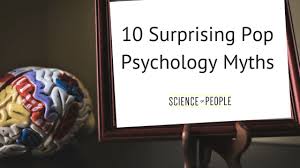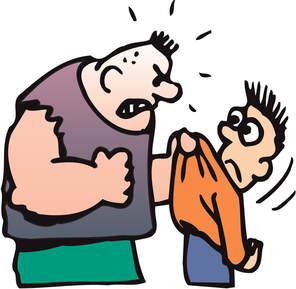 You’ve heard it, your momma’s heard it, your grandmomma’s heard it…but is it actually true? And if it IS true, why does it happen? This will be the topic for todays article so buckle up. This is a big topic but affairs may not be as ‘rampant’ as you might thing. Men are more likely to cheat (21% of males have had affairs) and women are slightly less at 15% average. Men win again! Animals. Ok, back on topic: lets answer the ‘why people cheat’ question before we answer if they’ll always be a cheater. This is not a ‘one size fit’s all’ topic. The ‘cheater’ may have had cheating parents or they may be chronic liars. They may be narcissistic or have some type of attachment disorder – all mental health disorders aside, here are a few potential reasons of WHY people choose to have an affair.
Ok, the last one seriously borders on an attachment disorder but I really wanted to get to an even 10. Looking at this list, you may be able to narrow it down even further. Often in couples sessions, we discuss the issue around ‘needing’ the other person to be ok. Now, look again at the list above; how many of the 10 things correlate to depending on the other person to be ok. In every couples’ session the affair connects on 1 of 2 things – there’s something missing in the offender or there’s something missing in the relationship. It’s valid. Take reasons 1-3 and just add “I NEED more” at the end and you’ll discover that the issues stem from the person cheating, not the person being cheated on. Look again and you’ll be able to add “I need more” to reasons 5, 6, 7 and 9. That only leaves 4 (Resentment), 8 (Revenge) and 10 (Abandonment issues) to identify. Resentment and revenge dial into ‘victim stance’ and being afraid to get hurt or abandoned (IS EVERYONE) to the point that you’ll sabotage a relationship is really no. 7 so lets just take that one off altogether. Surprise surprise; turns out that a person who cheats likely does so because of their own personal issues - not the other way around. In other words, if you were cheated ‘on’, it’s not actually because you weren’t enough of something (sexy, loving, attentive, exciting, fun, smart, pretty, thoughtful, handsome, rich, etc.) Now to address the main pop psychology message that ‘once a cheater always a cheater’. It is a myth and scientific research shows quite the opposite. People who cheat may never cheat again – in fact, many people only cheat one time. One and done. Repeat offenses happen when the root issue of infidelity isn’t addressed and worked through. Remember, the person who’s cheating is often going through their own kind of crisis - compassion is helpful. Being rejected always feels harsh and most of the time, the person cheated ‘on’ leaves the experience feeling like it’s their fault. Like they weren’t enough for the other person which isn’t necessarily valid. However, if you’re cheated on often or more than once with the same person, you most definitely play a part in the pattern (which is something you get to figure out). This can be a sensitive subject for many people. That said, a therapist can help immensely with the process. Thanks for reading and as always, don’t forget to follow, like and share if you think this information was helpful. The website for all things therapy is www.meaningtolive.com Till next time, awareness up. Jed Thorpe, CMHC
0 Comments
 “Pop” psychology is short for a “popular” psychology take on any given subject. The dangers of this come from a lack of scientific backing and you’d be surprised what makes the list of MY personal top 3 “Pop” psychology facts that turned out to be myths. Which ones sound familiar? #1. People only use 10% of their brains. MYTH! Turns out we use 100% of the brain every single day. This myth first began in the 1800’s and was reinforced in the 1900’s when scientists compared brain scans from a child prodigy to an average child. The prodigy has a more active brain, look! Fact is, the prodigy was able to utilize more parts of their brain at the same time. The average kid utilized the same amount of brain – just at different times. #2. Opposites attract. This one shocked you, didn’t it? This is a huge ‘POP’ psychology MYTH. Scientific research actually finds that the more similarities two people have, the longer they will maintain a successful relationship. That’s right, the more you have in common, the better chances you have to stay together and the happier you’ll be – not the opposite. #3. Smiling all by itself will make you happier. This one is very persistent in pop psychology – and guess what: MYTH! Turns out you cannot trick your emotions. ‘Fake’ smiling when you don’t feel happy can actually makes people feel worse. When you push down negative emotions, your stress level will rise and the unhappiness lasts LONGER. Whoops, curse you popular psychology! I am on board with posture being connected to positive emotions. There are many more MYTHS out there that have been passed on through the years – I think my next article will be on the popular psychology belief of, “once a cheater, always a cheater”. Please BE careful of what beliefs you pick up – at a minimum, follow my blog and have all life answers at your fingertips. Thanks for reading and don’t forget to subscribe, follow, like, share, comment, etc. etc. Till next time – awareness up! Jed Thorpe, CMHC  Depression rates are rising in the U.S. and Utah is at the top 5! We could speculate about possible reasons to explain this (I think it’s in the water) BUT, I’d rather get some great information out there to help people feel better. You don’t need to be a therapist to have awareness around the topic of depression. It seems like everyone either knows someone personally or has had their own experience with being sad for long periods of time. When working with people who are feeling depressed, I've noticed one thing they have in common; the inner bully. There are a lot of phrases used to describe this thought pattern of negative self talk. My favorite is 'shoulding on yourself'. Others call it 'stinkin' thinkin' and don't pretend you don't have your own favorite way to punish yourself. The one I hear MYSELF say (in my head) is, “Jed – dumb!” Or, "nobody is going to listen to you so why even try". You have your own go-to’s as well…you’re probably thinking of them right now. Clients working through depression have some pretty mean inner bully narratives happening almost constantly. Instead of, “dummy”, theirs is meaner and says, “you’re a real loser" or "you’ll never amount to anything" or "see, I knew you’d screw this up." or "people only pretend to like you…” The list goes on and on. This 'inner bully' is loud and relentless. It spouts out blame and shames you for anything ‘you’ can think of. Who wouldn’t be depressed with this harassing, broken record going on in the background ALL OF THE TIME?! Of course, I understand that there is a chemical component of this but I’m don’t prescribe medication – I’m more into analyzing thoughts and how they connect with feelings. Think – feel – behave. Here are the top 3 behavioral changes to calm (and eventually extinguish) the inner voice that brings you down.
4. Service. When you think AND do for someone else, you’re less in your head about your own worries. Your inside bully won’t stand a chance. Thanks for taking the time to read and I hope you enjoyed. Please like, share and comment as this helps spread awareness. Seriously, it’s time for Utah to start losing at being depressed. Till next time, Awareness up. Jed Thorpe, CMHC |
Archives
June 2024
|
Proudly powered by Weebly
 RSS Feed
RSS Feed